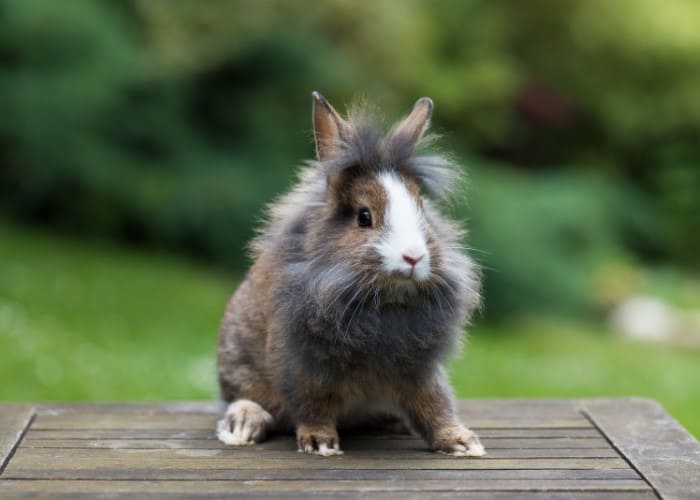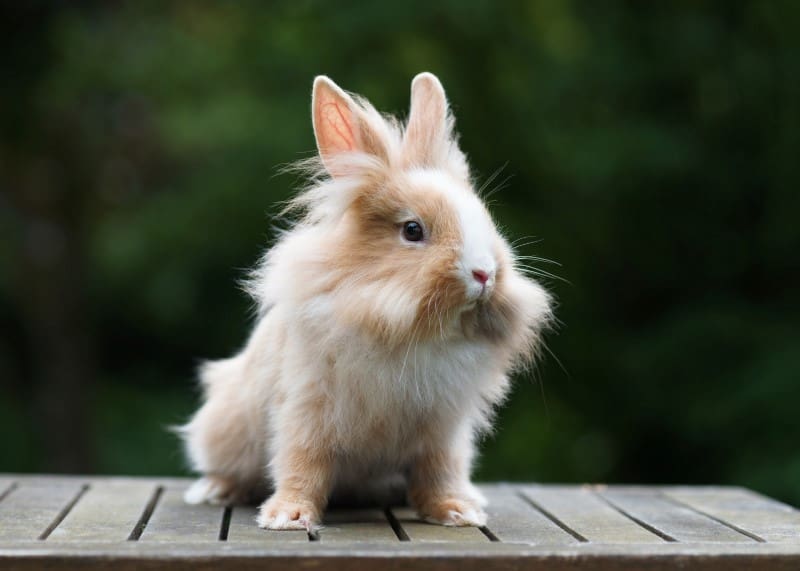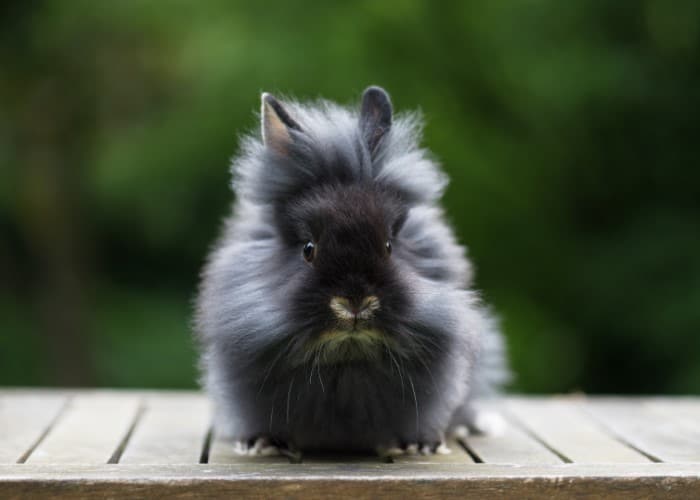Rabbits have become one of the most popular pets in our homes today. One of the breeds that attract the most attention nowadays is the Lionhead rabbit. Its characteristics and peculiar physical appearance make it a loving animal that inspires a lot of affection. But very few know how to care for Lionhead rabbits.
These bunnies are relatively easy to care for, and once they have adapted and feel secure in their new environment, they are usually very loving and playful creatures. If you like Lionheads and are considering having one, you must become well acquainted with their care so that you can offer them the best quality of life.
If you want to know how to care for a lionhead rabbit, we encourage you to continue reading so that you can learn more about these beautiful rabbits. But first, let learn a little about their history.
Brief History of the Lionhead Rabbits
Lionhead Rabbits first arrived in the United States in 1998, but they soon became one of the preferred breeds among rabbit lovers.
These bunnies were not officially recognized as a proper breed by the American Rabbit Breeding Association until 2014. However, their beauty and increasing popularity as pets contributed to their recognition as such, and today they are considered a fantasy breed.
Conversely, the British Rabbit Council recognized all the known colors and varieties of this breed by 2002.
Origins of the Lionhead Rabbits
Although there is no actual evidence, it is believed that Lionhead rabbits have their origin in Belgium from a crossing between the Swiss Fox and Belgian Dwarf breeds. Some other experts claim that the Lionhead is the outcome of a cross between a Jersey Wooly and a Dutch Dwarf.
The debate as to which two breeds were involved persists nowadays; however, no one can deny that some sort of genetic mutation occurred during the crossing. This mutation caused this new breed to invariably produce a wool line around the head region, which often persists on the flanks as well. That is why we now know this by the name of mane gene.
Let’s Meet the Lionheads
Lionhead rabbits are loving, sweet, and captivating little creatures. This breed can reach a weight of 3 to 3 3/4 pounds and have a well-rounded body.
Lionhead rabbits are known for having a dense mane around their heads, reminding us of the king of the beasts, hence their name. Their fur is slightly longer, about two to three inches long, around their faces, neck, ears, and hindquarters. The remaining of the body may have a standard coat.
Their coats can be of a variety of colors. Color varieties include Tortoise, which includes black, blue, chocolate brown, and lilac, Ruby Eyed White, Chocolate Seal, and Siamese Sable.

How to Care for Lionhead Rabbits
Taking care of a Lionhead rabbit is not very different from taking care of other rabbits. It requires patience, love, and attention to keep them healthy and happy, but it also requires special attention to be given to their unique coat.
The following are some of the things you can do to take care of your Lionhead:
Lionhead Rabbits Demand Considerable Daily Grooming
What distinguishes the Lionhead from other rabbit breeds is precisely the reason why they require additional daily care. The biggest challenge you will face in taking care of your Lionhead will be caring for its mane. Their unique furs need extra attention.
Regular brushings are very important to Lionhead rabbits, as mats can develop very quickly and easily, and if left unattended, can cause pain and even skin and ear infections to the rabbit.
Grooming a rabbit can often be a challenge, especially with long-haired breeds such as Lionhead rabbits. Short-haired rabbits are relatively easy to brush and comb, but long-haired breeds can be a real problem, especially if you are not familiar with their care.
How Should We Take Care of Their Mane?
When taking care of a Lionhead, you will soon discover that you will be spending a considerable amount of time to perform grooming related tasks. You will need to keep your bunny’s hair combed, untangled, and clean at all times. Even though many rabbits can take care of their cleanliness, long-haired rabbits may require some help. These are some of the things you can do to help them out:
- You can prevent tangles from occurring by brushing its fur 2 or 3 times a week. During the molting season, brushing should be done daily.
- If your rabbits’ mane becomes too long around the eyes, as to reduce eyesight, you might consider brushing and trimming these areas a little. Please be very careful when doing this because you can easily hurt the rabbit if it makes a sudden move.
- Reduce the pulling by holding the base of the hair with the fingers of one hand while combing or brushing it with the other. Your Lionhead skin is very delicate. If it hurts too much, the rabbit will start to set up resistance or will become stressed.
- If you find any tangles or knots, sometimes it is easier to trim them than to comb them, but make sure you use hairdressing scissors with rounded ends so as not to damage the delicate skin of the rabbit.
- Offer fruits or malt paste a couple of times a week to avoid intestinal occlusions. As Lionhead rabbits shed a lot of hair, they can ingest it in large amounts while grooming themselves, which can lead to serious digestive problems.
- You don’t need to bathe your rabbit. Bathing could be more harmful than beneficial, as it can cause hypothermia, which can lead to death.
- Avoid diseases like myiasis. This condition develops when urine or feces accumulates on the rabbit’s bottom. Flies are attracted to lay eggs in the dirty coat, from which larvae are born and invade your bunny’s skin. You should check your rabbit’s fur every day. Wipeout any dirt and remove any eggs immediately. If you see larvae, contact your vet for an emergency appointment.

Sometimes, we do not dare to carry out the grooming tasks either because of lack of experience, a lack of time, or not having the right tools. If this is your case, do not hesitate to consult your vet or a professional groomer who can help you with the hygiene of your Lionhead rabbits.
Other Useful Tips and Tricks:
Cleaning long hair and woolly rabbits can be stressful for both the rabbit and the caretaker. Lionheads’ skin is too sensitive, and if it hurts too much, the rabbit will resist or will become stressed at the moment of grooming. Here we will share with you some tricks which could be useful when cleaning your pet rabbit:
- Brush a small area at a time. You can try offering some fruit or treat as a reward every time you brush an area. In this way, your rabbit will perceive the grooming session as something positive.
- You can massage the skin of your rabbit at the same time you are brushing it. Massages offer a fantastic felling to our pets. A gentle massage will help your rabbit to relax and also serves to stimulate circulation.
- Use only a soft bristle baby brush to massage your rabbits’ skin. Hard bristle brushes can injure your rabbit’s delicate skin.
Practicing these techniques can make the grooming session a pleasant one.
A Healthy Diet
A healthy diet is essential to the health of your pet rabbit. The feeding regimen of a Lionhead rabbit is not different from that of other rabbits. A daily, healthy diet should consist of about one cup of high-quality pellets, an unlimited amount of fresh hay, and plenty of fresh, clean water. Also, you can give them small quantities of vegetables and fruits suitable for rabbits, in moderation, which is on average 2-3 times a week.
You can take care of their oral health by giving them pieces of natural wood or cardboard so that they can bite them. In this way, you can prevent the uncontrolled growth of its teeth.
In other articles, we have already pointed out and emphasized the type of food and meals which are suitable for our pet rabbits. Remember that their digestive system is extremely delicate, so not all fruits and vegetables are recommended. Give them fruits and veggies only in moderation.
A Nice Cage and Pleasant Environment
Your rabbit will need a cage that offers enough space to move around when it is not loose. A recommended and adequate size is at least 90 centimeters long,60 wide, and 50 high.
Be sure to provide an area where it can eat, as well as a resting area. We advise you to build a bed or support with wood shavings that are capable of absorbing urine.
Clean your rabbit cage and change the wood shavings at least once a week. A clean cage will avoid your rabbit’s fur from becoming too dirty and will help you get rid of bad odors.
Rabbit toys are a recommended option to keep your rabbit busy while you are away from home.
Daily Exercise
Lionhead rabbits are very energetic. Exercise is a must in their daily routine. These bunnies will need to get out of the cage at certain times of the day to stretch their limbs, run, and play. Exercise will prevent them from reaching high-stress levels.
Offer them suitable toys and take advantage of this playful time to build a strong, loving bond with your rabbit. You will be surprised at how smart and loving they can be.
Adequate Preventive Medical Assistance
In addition to the cares we have already mentioned, your rabbit should have regular vet check-ups. Vaccines are a valuable way to protect the health of your rabbit.
Your vet will assist you in answering any questions you may have about your pet rabbit. He will be able to help you out with problems that you may find a little difficult to solve, such as trimming your bunny’s nails and teeth.
As we have already seen, Lionhead rabbits are one of the most popular rabbit breeds nowadays. These rabbits can be incredible pets. They are prized for their sweet appearance and friendly temperament. But, before venturing out to buy a Lionhead, think about whether you can provide the proper care for a Lionhead rabbit for life.
Many people take these pets home without knowing the care they need. Unfortunately, many of these animals end up paying the consequences of negligent care. You should know that Lionhead rabbits can live up to 10 years, so this is a long term commitment.


